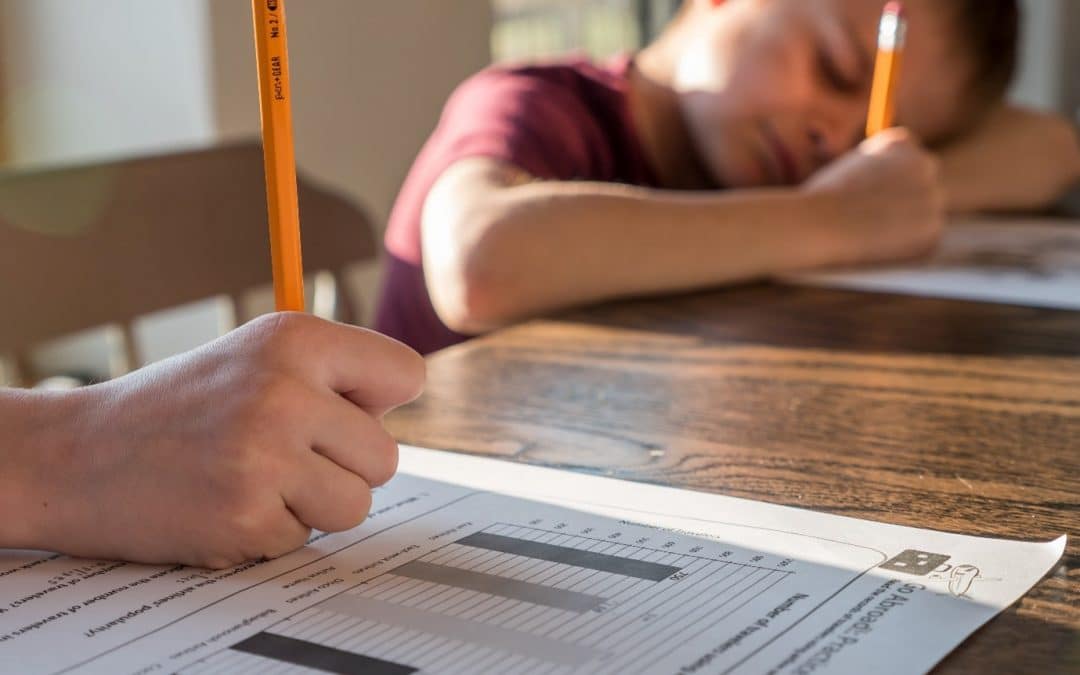Many students suffer from maths anxiety. The Australian Council for Educational Research estimates that around 20% of students are ‘highly maths anxious’. Signs of a high level of maths anxiety include avoiding the subject, inhibited memory for mathematical concepts, inability to focus, disinterest, and an overall negative attitude towards maths. Ultimately students who are highly maths anxious will avoid all subjects that include maths, which ultimately inhibits their learning and career opportunities.
Maths anxiety is not a diagnosable condition like anxiety disorders or other mental health conditions, however it is important to notice how your child talks about and approaches maths in order to recognise where they need help. Like most health conditions, early intervention can make a decisive difference.
Maths is weighed down by generations of negative myths. You’ve probably heard yourself that ‘maths is difficult’, or ‘maths is for smart people’, or ‘I don’t have a maths brain’. However, these ideas forget that maths is a language of its own, replete with its own symbols, logic, and vocabulary. Just as humans are wired to communicate through language, so too, humans are wired to be mathematicians in various capacities.
In his TED Talk, Australian mathematician, Eddie Woo, said: ‘Mathematics isn’t just about crunching numbers but rather about finding new ways to see problems so we can solve them by combining insight and imagination.’
Learning to understand the beauty and necessity of mathematics is fundamental for reducing maths anxiety. Here are a few examples:
- Cooking: How many ¼ cup measures make up 1 ½ cups of flour? How much sugar do we need to make a double batch of cookies?
- Shopping: Why is cooking from home is cheaper than eating out? How many kilos of bananas would equal $5.00 worth?
- Decorating: How many paint tins do you need to re-paint the living room according to the formula on the tin? Will your child’s bed fit in the space between the wall and the door frame or should it sit under the window instead?
By creatively demonstrating the practicality of maths, we can decrease maths anxiety through frequent, real-life problem solving practice.
Similarly, students tend to feel less anxious about topic quizzes compared to formal exams. The informality of a quiz helps students to focus on a specific area of their knowledge and target their revision accordingly. Small check-ins like quizzes make the process of testing their knowledge less overwhelming.
Regularly monitoring a student’s progress and giving specific, timely feedback is essential for improvement. Regular feedback in small doses, one topic at a time, is more easily understood, less intimidating, and is much easier for the student to apply, compared to receiving a large amount of feedback at once.
Each student learns at their own pace and it is true that some learn mathematical concepts faster than others. Tutoring provides a focused, one-to-one approach to meet your child where they’re at. Our friendly tutors work with your child to set individual learning goals and devise a realistic plan to achieve them, giving specific, relevant, and timely feedback along the way. Our tutors are patient and empathetic, encouraging resilience, self-confidence, and a growth mindset which is an essential trait of successful learners.
By combining everyday talk about applications of maths practicality of maths with tutoring to provide regular feedback and support, you can help to maximise your child’s learning opportunities and reduce their maths anxiety. Contact Us today to see how our team can support your child’s learning.
(Photo by Jessica Lewis on Unsplash)

